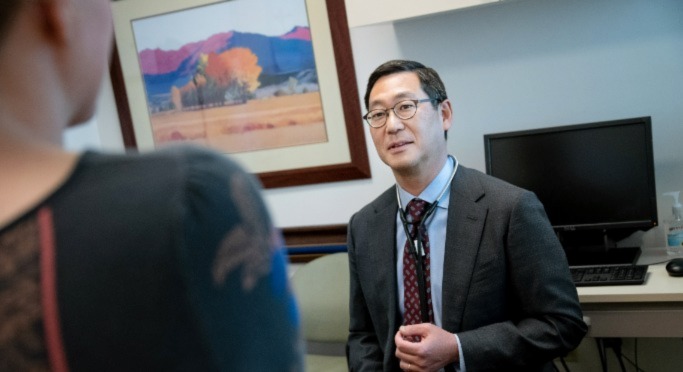What are Liver Masses?
Liver masses, also called liver lesions, are abnormal growths that may be noncancerous (benign) or cancerous. While it is not completely known why some masses develop, they may be caused by scarring from chronic liver disease, smoking or hormones found in birth control pills.
Generally, benign liver masses do not cause any symptoms, especially when they are very small. However, sometimes they can grow large enough to press up against nearby organs, causing abdominal discomfort. In cases where liver masses are cancerous, common symptoms include abdominal pain, fatigue, a loss of appetite, yellowing of the skin and eyes (jaundice) or a lump on the top right side of the stomach.
Types of Liver Masses
There are different types of benign and cancerous liver masses. These include:
Benign Liver Masses
- Liver hemangioma: This is the most common type of noncancerous liver lesion. It is made up of abnormal blood vessels.
- Liver adenoma: This is a rare benign liver tumor that occurs when people take steroids, like those found in birth control pills.
- Focal nodular hyperplasia: This type of liver mass often occurs in women.
- Liver cysts: These are fluid-filled sacs that may be present at birth or develop later on in life.
Cancerous Liver Masses
- Hepatocellular carcinoma: This is the most common form of liver cancer and develops in those with liver damage due to alcoholism or viral hepatitis.
- Metastatic liver cancer: This form of liver cancer occurs when tumors from other areas of the body spread to the liver.
How are Liver Masses Diagnosed?
To diagnose liver masses, your provider will ask you about your medical history and perform a physical exam. He or she may then have you undergo some testing including liver function tests, abdominal ultrasound, CT or CAT scan, liver biopsy and more.
Treatment Options for Liver Masses
Treatment for liver masses will depend on if they are benign or cancerous and the size of the lesions. In cases where lesions are benign and small, no treatment is needed. However, if benign lesions are large and cause symptoms, they can be surgically removed.
In cases where liver masses are cancerous, there are several treatment options, including:
Ablation
Ablation eliminates the liver mass with chemicals or heat.
Removal of the Mass
Surgical removal of the mass may be an option if the liver is overall healthy.
Liver Transplantation
If the liver is diseased, it may need to be removed and replaced with another whole part of a liver.
Chemotherapy
Chemotherapy is used to kill cancer cells and can be given intravenously or as a pill.
Your South Denver GI Team
At South Denver GI, our team of physicians and advanced practice providers have the expertise to provide you with outstanding care. If you would like to learn more about Liver Masses or need to schedule an appointment at our office, contact us today!
View All Our Providers
Contact Us Today
To learn more about liver masses or to schedule a consultation appointment at South Denver GI, contact our office today. We will be happy to assist you.
Contact UsRequest Appointment
Click on the Schedule Appointment button to schedule an appointment with your South Denver GI provider online. If you do not wish to use our convenient online scheduling tool, please fill out the form below and our team will contact you shortly.







